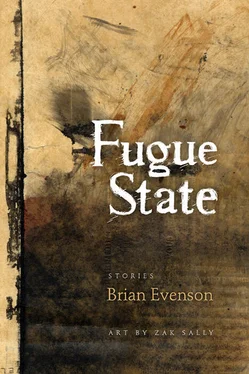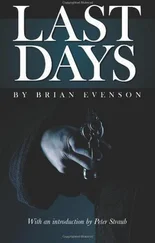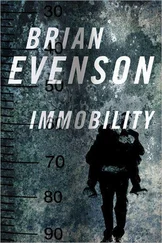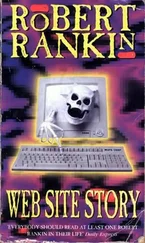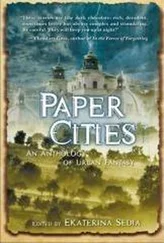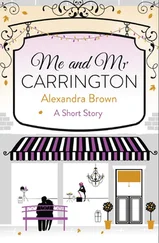“Nonsense,” said Craven. “We’ll ask a chiropractor in from town.”
As Craven ate, Sindt watched. Craven seemed fully awake, his face unlined, his eyes clear, as if he had slept soundly through the night rather than spending all night at a desk in a greenhouse, writing. Perhaps it had not been Craven, thought Sindt, but no, who else could it be? And even from the back he had been certain who the man was. Yet here Craven was, eager and visible despite everything, and well into his breakfast.
Was there anything planned for the day? Sindt wanted to know.
Planned? said Craven. No, nothing. As for himself, he would enjoy a day in the out-of-doors, wandering through the trees, perhaps climbing a little way up the side of the mountain. Sindt, of course, was welcome to join in.
Sindt declined. In the tower after breakfast, he watched from the window as Craven trudged around the greenhouse and set off through the trees. He spent his own day wandering the house, slept for a while in the tower. He wandered the clearing as well, catching glimpses of Craven from time to time. Approaching the greenhouse, he found it locked. Through the glass he could see rows of emptied clay pots along each wall, a dirt floor, the chair, the desk with sheaves of paper on both sides of it. He tried, by moving along the side of the greenhouse, to catch sight of the words on the top sheet, without success because of the angle of the pages, the waver of the glass. The lock on the door was simple, part of the latch, and he thought if he pushed on the door just right he might be able to spring it, though there was always the risk of the panes of glass breaking or slipping out. And what, in any case, would Craven think if he saw him? He couldn’t have Craven thinking he remained interested in his writing. He certainly didn’t care to give Craven material of that sort to use in constructing the Sindt of his novel.
That night, after a light dinner which again recalled Craven’s work — the poached salmon found in the novella Box of Sky —Sindt climbed the circular staircase to the tower and again saw the light thrown on the ceiling. He can’t stay up all night, he told himself. This time I will watch until he falls asleep. I will watch all night. I will find him out.
He stayed up, seated at the window, resting his arms on the sill, watching Craven’s malfocused back, his slight and minute movements only partly available through the glass. If only I had a pair of binoculars, he thought, and wandered the house in search of those or some sort of spyglass, finding nothing save the thick bottom of a whiskey tumbler, which, while it admittedly magnified things, severely distorted them at the same time. This too, he realized, could have been an object from one of Craven’s books, and though it was in none of the published books, perhaps it would be found in the book Craven was writing in the greenhouse now. When Sindt returned to the tower, Craven was still in the greenhouse, still at his desk, the papers in the pile on one side migrating slowly to the pile of paper on the other side. Sindt sat again at the window and for a time moved the tumbler from eye to eye to eye; through it, the greenhouse became a ghost of light, the light striking rings into the poorly ground glass base. After a while, he set the tumbler down on the floor, leaned again on his elbows. A little while more and his chin slipped onto the sill, and then he was waking up, morning having long arrived, his back sore, his body half-slid from the chair.
It was like that the next night and the next, and Craven each morning as bright and unblemished as if he had been freshly created instead of having spent all night at a desk, writing. Sindt, though, felt increasingly disoriented, hardly able to sleep either at night or during the day. It was as if there were more than one Craven: one who wrote, another who appeared in Tyrolean garb by daylight, perhaps others as well. He asked Craven, or one of the Cravens, if he had a pair of binoculars, and though Craven claimed that yes, he did, and that yes, Sindt could borrow them, he never produced them. Their relations seemed to Sindt to become more strained and he felt they spent their days circling one another, excessively formal (he realized this was a description as well of Jansen and Jensen’s interactions in Craven’s Moody Mouths), as Craven or Cravens waited for evening to come so they could write and Sindt awaited an evening of trying to make things out through glass. How is your writing coming? Sindt finally asked, and was surprised when Craven answered, I’m not writing. I haven’t written a word in weeks. Yet there he was, below, scribbling away, night after night. Though Sindt could not, through the glass roof, make out the words — or even for that matter make out that there were words — he sat, peering out over the sill, trying by force of will to make his eyes see farther and farther. But he could never make out enough: only Craven, only the papers’ slow flight from one sheaf to the other, a few sheets a night. He tried to imagine what was on each sheet, pieced together scenes from an imaginary novel, wondering where, if anywhere, he fit in.
By day he went through the house, searching for Craven’s room, but there was no sign that any of the other rooms were occupied. Well over a week into the visit, he had still not caught even a glimpse of the cook. The pile of blankets on the pantry floor never seemed to have been slept in. There were, he thought, too many Cravens and too few chefs, and then he winced as he remembered another line from Velvet Fury
Too many ravens and too few corpses
for it seemed that the syntax of Craven’s sentences was rewiring his head.
He would leave, he told himself, he would pack his things and depart that night. He even managed to fill and close his suitcase and sit in the chair awaiting darkness. But darkness was scarcely come when the light was there again, again cast upon the ceiling. He abandoned the suitcase to pull the chair again to the window, speculating on what Craven was writing, the imagined words swirling about within his head, settling briefly, then swirling off. The words would, he realized, continue to spin about, continue to batter the insides of his head even after he had left the house. Better, he thought, to see the actual words, to read what was there on paper, to allow the words to set and solidify and thus sink lower in his head and be forgotten. The imaginative process can ruin a good head, he thought, and must be brought to a halt before it is too late. The actual was the only way to stop the whirligig of the possible. There seemed no choice but to once again read Craven.
But when, and how, was one to go about it? It could not be done by night, for at night Craven was in the greenhouse himself, composing. Sindt could not simply ask Craven to show what he had written, for Craven had claimed not to to be writing at all. During the day, too, Craven came and went about the grounds and might well discover him as he forced his way into the greenhouse, particularly if there were more than one Craven. And where, too, was the chef? He had never seen the chef, but that did not mean that the chef had never seen him. Perhaps the chef was observing him even now.
He finally settled on early in the morning, thinking it possible, perhaps, to sneak down the stairs and out to the greenhouse after Craven had left it, while Craven waited for him at the breakfast table.
He slept, or tried to, through most of the night, finally jerking fully awake with the cold light of dawn. Having slipped on his socks, he slowly granched the door open. The stairway was empty. He made his way slowly down, turning around the narrow staircase, dragging his hand along the wall for balance. He crossed the hall carefully, eased the front door open, went out.
Читать дальше
